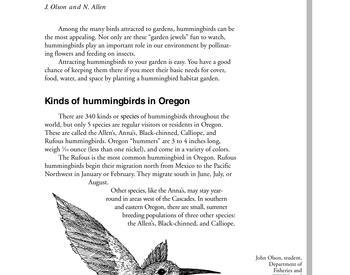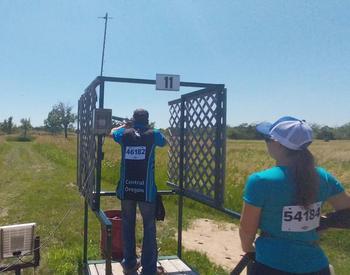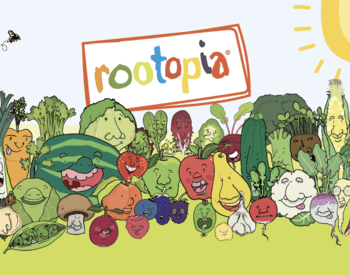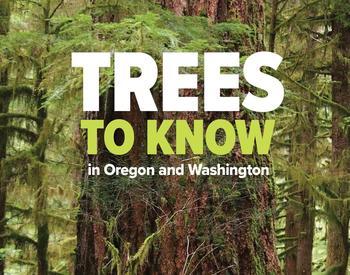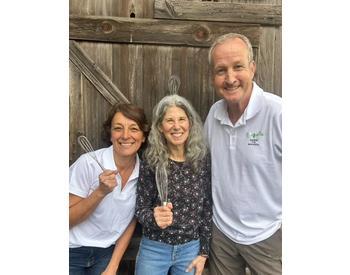Applying for your first job often involves learning a lot of new skills like writing cover letters, creating résumés, filling out applications, and more. This can be stressful at first! But once you’ve applied for one job, the process gets a lot easier the next time. Below you’ll find some tips to get you started on applying for your first job or internship.
You’ve found an ad for a job or internship — now what?
What skills are they looking for? You should have most of the skills they require, but if you are missing a few, it might still be a good fit. For instance, if one of the job qualifications is knowing Microsoft Excel but you’ve only used Google Sheets — that’s OK! When reading through the required skills, think about what skills you already have versus those you could learn.
Do they require any previous experience? Or education? If this is your first job, be sure to think beyond just work experiences and consider other places you’ve gained experience like by participating in clubs or sports, through volunteer work, etc.
Does the job or internship interest you? If not, this is probably not a good fit and will make the application and interview process a lot harder! It’s OK if everything doesn’t interest you, but you should find at least part of the job that matches your interests or goals.
If it looks like a good fit for you, look at how to apply for the position
What information are they requesting from you? Often, job advertisements ask for a résumé and cover letter, professional references, and for you to complete an application.
They may also ask for you to answer certain questions, provide letters of recommendation, or submit a sample of your work.
Read carefully so you don’t miss anything! Often, incomplete applications won’t be reviewed, and you will lose your chance at the job or internship.
Creating your first résumé
Almost every job or internship will ask for a résumé, which summarizes your experience and education. Start by making a list of everything you’ve done that would prepare you for this job or internship. This includes volunteering, clubs, or anything work-related you’ve done like help at a family business or provide child care.
Now that you have a list, write out all the skills and accomplishments you have demonstrated with each of these experiences. If you are having trouble coming up with a list of skills, check out a skills inventory list to help you put your experience into words.
Additional tips on creating your first résumé
Keep your résumé design simple and easy to read. There are several ways you can lay out your résumé — see some example layouts that are great for creating your first résumé.
Start by creating a basic résumé but be sure to customize it for each job or internship. You want to highlight the skills and experiences that are relevant to the job you are applying for rather than just listing all of your skills.
Keep your résumé to one page, especially if this is your first job or internship. You want to make it easy for the employer to see how you are qualified for the position without having to look through a long document.
Have at least two people review your résumé for any typos or grammatical errors. You can also review this résumé checklist to see if there is anything you may have forgotten to include!
Cover letters or letters of interest
Cover letters are a great opportunity to tell the employer why you are excited about this job or internship and why you are a great fit for the position. Cover letters also give the employer a sense of your writing style and personality. Don’t make the mistake of writing a letter that is too general and doesn’t provide any specific information about you.
If the advertisement has a contact person listed, address the letter to that person formally (e.g., Dear Ms. Smith or Dear Mr. Jones). If there is no contact person listed, it is also fine to address the letter to the hiring manager (i.e., Dear Hiring Manager).
Additional tips on cover letters or letters of interest
Keep the letter to one page but include at least three paragraphs — a letter that is too short won’t explain why you are a good fit for the job. Start with an introduction paragraph that mentions the job you are applying to, write at least one paragraph about your skills and experiences and end with a concluding paragraph. See some example cover letters.
Be sure that your letter is specific to this job or internship. Talk specifically about why you are interested in this job and the skills and experiences you have that make you qualified. Here is a great cover lettter checklist to make sure you are covering all of these points when writing your cover letter.
Job applications
Some jobs may only require an application and others may ask for a résumé and cover letter. Some may have you do both! This can feel repetitive, to enter all of your job information in more than one place, but if you don’t complete the application you likely won’t be considered for the job.
A couple other tips:
- Give yourself plenty of time to complete the application! Many online systems require you to create an account and it can take some time to fill in all the fields. You don’t want to wait until the day the application is due to get started.
- Have your résumé with you when you are completing the application — you will often be able to use some of the same information on the application too.
Additional tips on job applications
Complete the application fully. Make sure you are providing all the information they require, even if that information is also on your résumé or cover letter.
Most applications will ask about the dates of your work experience or education. Be accurate on the month and year but if you can’t remember the exact day of the month, that is not a big deal! A job or internship won’t reject you if say you graduated on June 15, 2020, but really you graduated on June 13, 2020.
Professional references
Often job postings will ask you to include contact information for your professional references. What are references? These are the people who can speak about your professional and work skills.
Who can you use as a reference? Think about people who know you fairly well and can speak positively about your skills for the job. Often, this is someone who supervised you at a job. But, if this will be your first work experience, consider teachers or professors, school or college counselors and advisors, or someone else who knows your professional skills such as a supervisor for volunteer work, a school club advisor, a mentor, or even a coach who knows your work ethic.
Additional tips for professional references
Who does not make a good reference? You should never put family members or personal friends as references. Even if they know about your work skills, an employer won’t be sure if they are speaking honestly about your work or just saying nice things because of your relationship.
Ask your references if you can use them as a reference — this is a nice thing to do and you may also get some helpful feedback to use for your job search! You can also be sure you have their latest contact information (email and phone number).
Tell your references when you are applying for a job or internship. That way, your references will be on alert for any calls or emails and be able to respond quickly. When you provide your references, be sure to include (1) their full name, (2) their contact information — ideally phone number and email, and (3) how you know them.
Contact your local Open Campus coordinator!
This will take time and work but don’t get discouraged! Everyone had to go through this process at one point and it does get easier with time. OSU’s Open Campus team is always happy to support you through the process of applying for a job or internship.

